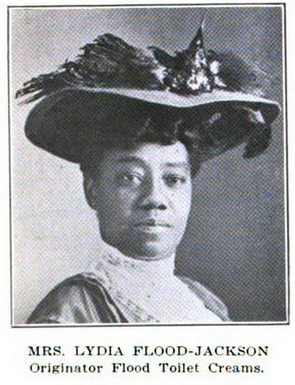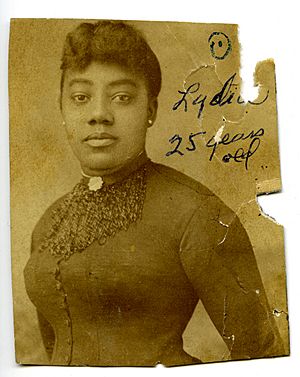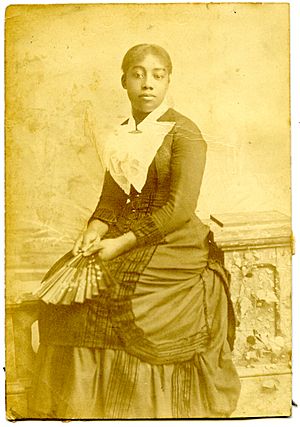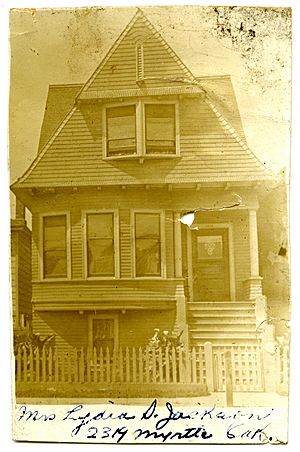Lydia Flood Jackson facts for kids
Lydia Flood Jackson (born June 6, 1862 – died July 8, 1963) was an American businesswoman. She was also a strong supporter of women's right to vote. She was an important leader in women's clubs.
Contents
Early Life and Family History
Lydia Flood was born in Brooklyn, California. This area is now part of Oakland, California. Her mother was Elizabeth Thorn Scott Flood and her father was Isaac Flood.
Lydia's mother, Elizabeth, was born in New York in 1828. She moved to California during the Gold Rush. In the 1850s, African American children could not attend public schools. So, Elizabeth started the first school for black children in Sacramento, California in her home. This school later became part of Sacramento's school system. However, it was still a separate school for black children.
Lydia's father, Isaac Flood, was born into slavery in South Carolina in 1816. He bought his freedom and moved to California during the Gold Rush. He worked hard and became successful in real estate.
Elizabeth and Isaac married in 1855 and moved to Oakland. They were among the first African American families there. They worked to help African Americans gain equal rights and better education. They also helped start the Shiloh African Methodist Episcopal (AME) Church in 1858.
Isaac Flood fought against segregation in California schools. Because of his efforts, Lydia Flood became the first African American student to attend the integrated John Swett School in 1872. She also took night classes at Oakland High School. After finishing her schooling, she married William Jackson.
Fighting for Rights
Lydia Flood Jackson continued her family's work for civil rights. She was a strong advocate for both African American rights and women's rights. She was very active in women's clubs.
She was the first person to lead the law-making and citizenship efforts for the California State Federation of Colored Women's Clubs. She also made sure that secret ballots were used in the club's elections. Lydia was a member of the Fannie Jackson Coppin Club for 42 years. She was also part of the Native Daughter's Club.
In 1918, at the first meeting of the State Federation of Colored Women's Clubs, she spoke about women's suffrage. This is the right for women to vote. She honored the women who had worked for this right before her. She said that strong, determined women, with help, could achieve anything. She believed that voting rights were key to helping women reach their highest potential.
Lydia Flood Jackson was a political activist. She traveled to places like Mexico and South America to give lectures. She encouraged women to question their traditional roles. She wanted them to challenge the limits placed on them by society. She also urged women to examine and challenge the idea of white male supremacy.
A Successful Businesswoman
Lydia Flood Jackson was also a successful businesswoman and an inventor. She learned about investing in real estate from her father. This helped her to support herself.
She also created her own line of beauty products. These included toiletries, creams, and perfumes. They were called "Flood Toilet Creams" and were sold on the West Coast. Her success in business and activism made her a powerful figure in the African American community.
Later Life and Legacy
In the 1940s, Lydia Flood Jackson lived with her nephew, Leslie Flood, and his family.
When the Shiloh African Methodist Episcopal (AME) Church turned 80 years old, Lydia spoke to the church. She talked about her mother's important contributions to the church and to education.
On her 100th birthday, the City of Oakland honored her. They called her their "oldest living native." Lydia Flood Jackson passed away on July 8, 1963, at the age of 101. She is buried at Mountain View Cemetery in Oakland, California.
The Oakland Public Library keeps the Flood Family Papers. These papers include Lydia Flood Jackson's funeral program, letters, and family photos. They are stored at the African American Museum and Library at Oakland.
Images for kids
See also
 | Selma Burke |
 | Pauline Powell Burns |
 | Frederick J. Brown |
 | Robert Blackburn |






